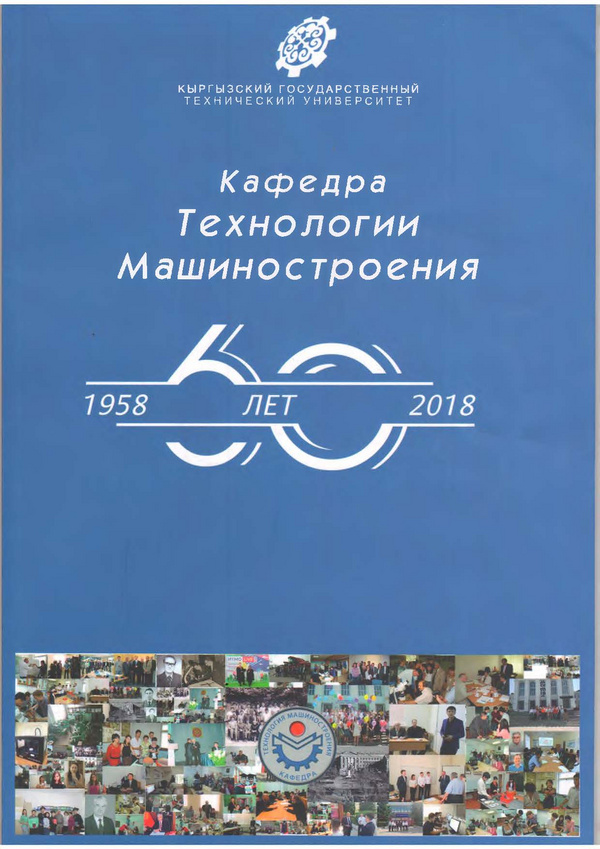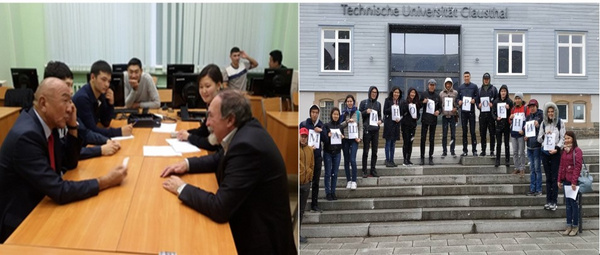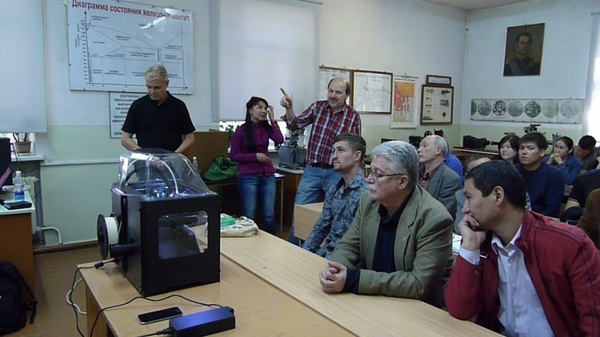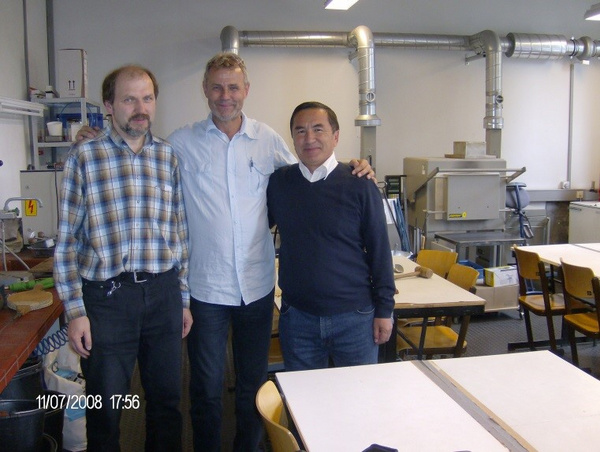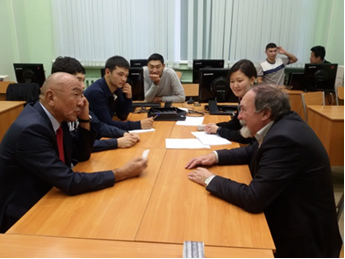Department History
Department of Mechanical Engineering Technology: history of formation and development
The Department of Mechanical Engineering Technology and its fate are closely connected with the development of mechanical engineering in Kyrgyzstan. In the terrible days of the beginning of 1942, several machine-building enterprises from the western regions of the Soviet Union were evacuated to Kyrgyzstan. They marked the beginning of our mechanical engineering.
The rapid quantitative growth of the republic's mechanical engineering in the first post-war decade could not continue without a corresponding influx of engineering personnel at the enterprise, a sufficient number of which could only be given by its own university, which became the Frunze Polytechnic Institute, established in 1954. In 1955, the first set of students in the specialty "Mechanical engineering technology, metal-cutting machines and tools" was carried out.
In the same year, the Department of Metal Technology was established, which supervised this specialty. It was headed first by Associate Professor B.M. Oseledchik, and since 1958 by associate professor V.G. Berezkin. In 1958, the Department of Mechanical Engineering Technology was separated from this department. The undoubted merit in the formation and development of the department belongs to its first head, Associate Professor Vladimir Ivanovich Kravtsov, who headed it until 1975. The teaching staff of the department was formed from among the engineering and technical workers of machine-building plants.
Department of Mechanical Engineering Technology: Today
During its existence, the department has undergone certain transformations. Today, the department focuses on educating specialists who are able to quickly adapt to constant changes in technology and technology, while having strong fundamental knowledge and skills in classical disciplines of the direction as a whole.
In recent years, the department has been actively working in the field of cooperation with partners of the near and far abroad, such as The Berlin Higher Technical School of Beuth (Beuth Hochschule für Technik Berlin), NRU ITMO, St. Petersburg, etc., participates in various projects to provide the educational base of the department with materials and equipment, supports the academic mobility of its staff and students.
Development of the educational process
Since 2005, in all areas of training at the department, educational activities have been carried out on the basis of the use of a credit system for organizing the educational process. All curricula have passed the appropriate examination and approved by the Ministry of Education and Science of the Kyrgyz Republic. In addition, work has been completed to coordinate the Bachelor's degree program in Mechanical Engineering with a similar program at TFH Berlin (Germany).
In recent years, the Department of Mechanical Engineering Technology has been reorganizing its work in accordance with the needs of modern production in market conditions. Step–by-step training of specialists - bachelors, masters, and since 2013, within the framework of the pilot project, the training of doctors of philosophy (PhD) is also carried out. Work is underway to create educational complexes in order to implement the structure of multi-level continuous training of specialists in the profile of the department according to the scheme: professional lyceum - technical school –college) - higher educational institution. Agreements on mutual cooperation on multi-level training of specialists have been concluded with industrial enterprises of the country, educational organizations of vocational education.
Partnerships and collaborations: Development of the material base
Thanks to close cooperation with the German partner, the department has equipped its laboratories with a modern electron microscope and a set of educational and laboratory equipment for manual molding and sand casting. With the active support of colleagues from the Beuth Hochschule für Technik Berlin, especially the head of the international Department, Dr. Karlheinz Borchert, Prof. Dr.-Ing. Manfred Paasch and Prof. Dr.-Ing. Ralf Förster by the staff of the department, Associate Professor T. S. Mambetaliev. and an associate professor Mukhtarbek uulu Kubatbek, former DAAD fellows, is preparing to implement a project that allows the department to study and explore all processes and practical actions from an idea – a working drawing of a part to a finished product in metal. So, the equipment will be provided by DAAD and includes:
- 3D scanner that allows you to create an electronic description of parts or complement CAD models;
- CNC milling machine;
- 3D printer;
- 3-dimensional measuring table for measuring micro errors of processing surfaces;
- A control computer with specialized software.
All the equipment will be connected to a single network of the department and will allow students to train and conduct research at the most modern level. It should be noted that the implementation of such a project has also become possible because CAD/CAM laboratories have been operating at the department for many years and students of all courses are fluent in computer design.
Partnerships and collaborations: Development of academic mobility
The Department also pays special attention to creating the necessary institutional conditions to ensure academic mobility and integration into the international educational space. Since 2014, together with the Department of Instrumentation Technology of ITMO National Research University (St. Petersburg, Russia), the implementation of a joint educational program (SOP) for the preparation of masters in the field of automation systems of technological preparation of production has been launched. The peculiarity of this SOP is that undergraduates study in the educational and research structures of two universities and upon completion of their studies and successful completion of the final state certification, they are awarded an academic master's degree with diplomas from both universities. At the same time, they receive a master's degree in two related areas – Mechanical Engineering and Information and Computing Technology. During the implementation of this program, 12 masters have been trained, and 5 undergraduates are currently studying.



